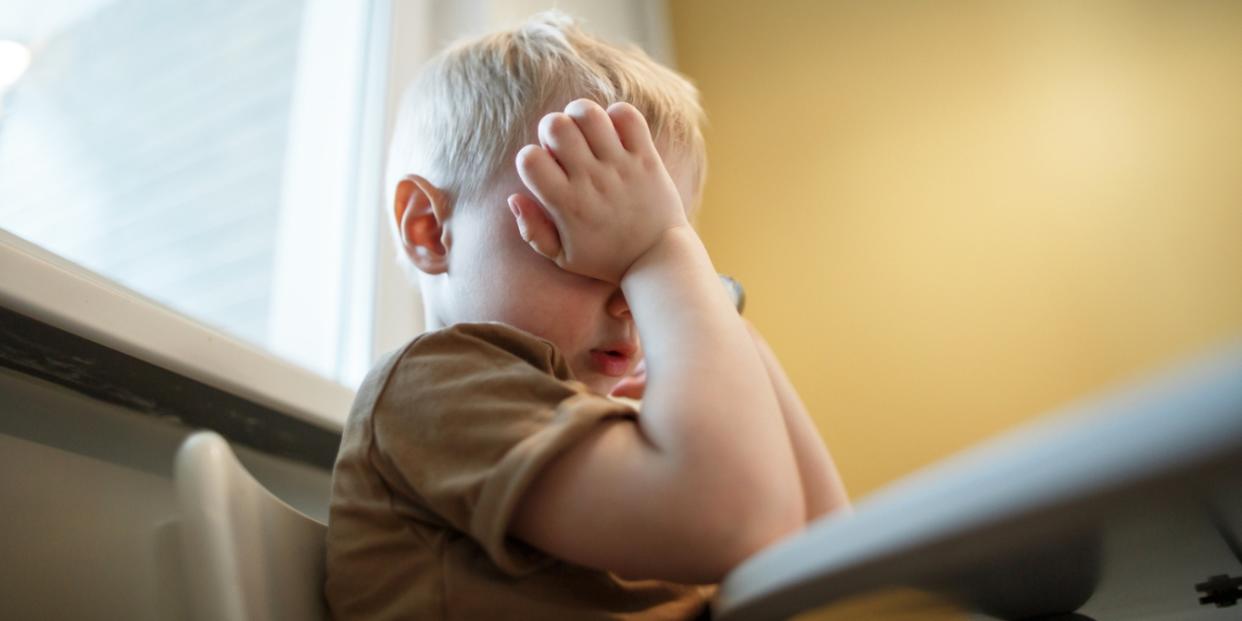Getting expelled from preschool is harmful for kids in the long run, AAP says

Too many families find themselves headed down the path of school expulsion—sometimes starting when their kids are very young. And the consequences of kids being expelled from daycare centers or preschools can be dire for young children, a new report from The American Academy of Pediatrics (AAP) warns.
When children are expelled from an early learning program, it may indicate an underlying emotional or behavioral issue that could have long-lasting consequences. Studies show that preschoolers who face expulsion are at a significantly higher risk of long-term impacts, being 10 times more likely to drop out of high school or face prison later in life.
That’s why AAP is urging early learning professionals and pediatricians to have protocols, screening tools and supports in place to help prevent children from being expelled from preschools, and recommends working with families and teachers to get kids the support they need. They published a report in the November 2023 edition of Pediatrics detailing their concerns and giving solutions.
“When preschoolers hit, kick, scream, use harsh language or refuse to follow adult instructions, their peers don’t feel safe. This is why school administrators, teachers and child care professionals often resort to suspending or expelling a child who behaves in aggressive or harmful ways,” P. Gail Williams, MD, who authored the paper, said in a statement.
“Yet studies of young children who act out in these settings suggest there’s more to the story. And there are ways that we as pediatricians and caregivers can help,” Dr. Williams added.
Children who are Black, male, have developmental delays, or have done through trauma have a higher risk of being expelled from early education programs, the AAP statement said. “Implicit biases of child care workers and inappropriate developmental expectations often contribute to high expulsion rates,” the authors note.
Large class sizes, low compensation for teachers/caregivers, and lack of mental health consultation for teachers regarding the emotional/behavioral concerns of children in their care also play a role.
“Preschool teachers need to recognize that problematic behaviors are a symptom and need to understand the underlying emotions that might need remediation,” Michael Yogman, MD, FAAP, an author of the policy statement. “Pediatricians can use care coordinators and integrated behavioral health providers [as part of the medical home] to work with the family when children are at risk for expulsion.”
“Pediatricians can work with child care providers and early child mental health resources to find more supportive and therapeutic alternatives to expulsion,” Dr. Yogman said.
The AAP recommends:
Preschools and daycare facilities adopt clear policies on suspension and expulsion. They should track data with an eye on eliminating expulsions.
Teachers and care providers should be trained on how to manage behavior, recognize implicit bias, and promote social-emotional regulation in preschoolers.
Early childhood teachers benefit from supports like improved working conditions, lower student-teacher ratios, appropriate compensation, and access to mental health services.
Families and early educators should partner to develop resources as alternatives to expulsion.
“When young children are expelled or suspended from child care or early education settings, they are deprived of both the positive opportunities offered by early care and education and the opportunity for remediation,” the organization states. The new policy is intended to both identify the growing problem of child care and early education expulsion and help foster collaborations that will offer better care to children.


